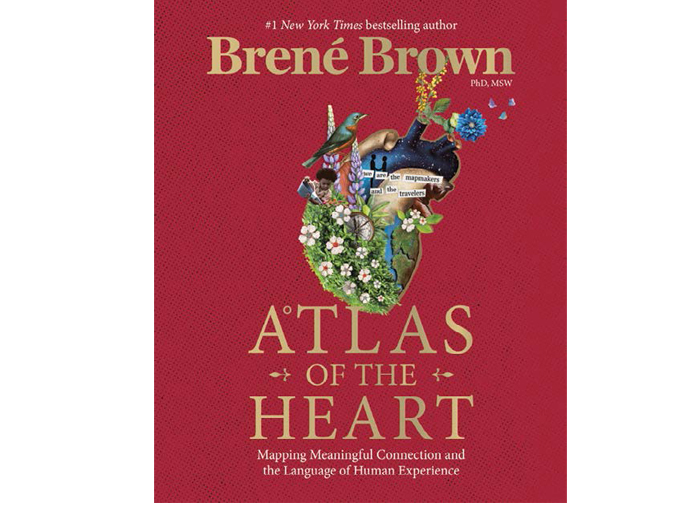Reviewed by Brandale Mills Cox, PhD, Founder & Principal, Inclusive Market Research Group, Albuquerque, New Mexico, brandale@inclusivemarketresearchgroup.com, @inclusivemrg
As a market researcher who focuses on understanding and articulating the experiences of communities of color, who often feel marginalized in mainstream functions of society, Brené Brown’s scholarship on shame, courage, and leadership resonates with BIPOC (Black, Indigenous, People of Color) individuals because these aspects often lead to othering or, in some cases, outright discrimination. From the lens of a Black woman researcher, Brown’s writings on empathy and vulnerability continue to bring me to points of self-reflection, particularly related to my role as a researcher engaging diverse communities.
Brown’s accolades include being a six-time New York Times best-selling author, podcast host, and the Huffington Foundation Endowed Chair at the University of Houston. Her 2010 TEDx Talk, “The Power of Vulnerability,” is one of the five most viewed TED Talks where she discusses the beginning of her quest to understand humanity.
I chose to work in insights because of my desire to be a lifelong learner, and I am always intrigued with Brown’s insights, which is why Atlas of the Heart resonated with my desire to better understand the nuances of human interaction.
Throughout Atlas of the Heart, Brown takes the reader on a journey in understanding communication and how language is used to create connection, learning, healing, and self-awareness. She begins with a discussion of complex emotions and how individuals experience them, referencing her ability to read people’s emotions, or as she jokingly refers to it, her ability to tell the future.
Brown notes that without the language to articulate the feelings or emotions we may be experiencing, we lack the ability to make sense of what is happening. She writes, “Without accurate language, we struggle to get the help we need; we don’t always regulate or manage our emotions and experiences in a way that allows us to move through them productively, and our self-awareness is diminished.” My brain immediately flashbacked to all the times I couldn’t articulate the intense emotions I was experiencing and how crippling and helpless those instances made me feel. The inner child in me immediately felt seen; the researcher in me wanted to give Brown a standing ovation.
Researchers can appreciate the role communication and language play in creating meaningful connections with participants to help foster a space where they feel unrestricted in sharing their experiences. But what happens if they lack the language to describe their feelings or emotions? As facilitators, how do you help bring our participants to a place of awareness to help recognize, name, and make sense of their feelings? Atlas of the Heart gives readers (especially qualitative researchers) a roadmap to help make meaning of our lives and experiences.
Brown discusses more than 80 emotions throughout the book, oftentimes referencing an emotion’s origin, how most people describe experiencing that emotion, and identifying triggers of each emotion. Qualitative researchers are naturally inquisitive and curious, which is why Chapter 4, “Places We Go When It’s Beyond Us,” speaks directly to the industry’s connection with ongoing learning. In it, Brown discusses the emotions of awe, wonder, curiosity, and interest, providing poignant distinctions between them. For example, Brown discusses how awe and wonder are often used interchangeably, but she explains there are key distinctions between our experiences of these emotions.
According to Brown, having access to the right words changes our experience. Language is the portal to everything. It gives us the tools to not only articulate how we think and feel, but also how to understand how others experience the world, which are skills that are vital to being an effective researcher. Atlas of the Heart can have a profound impact on how we engage professionally, understand human connection, and maximize our use of language to help describe and illustrate experiences.




